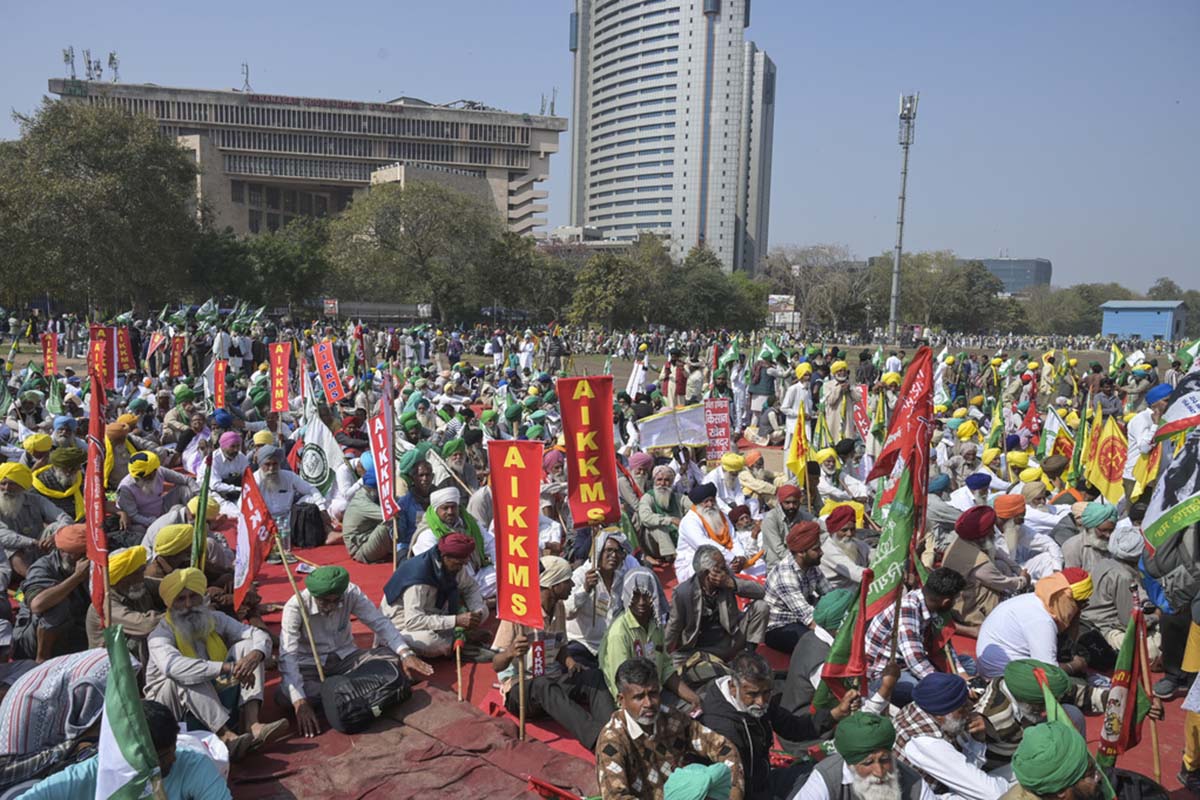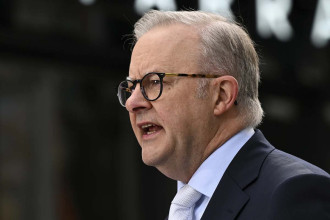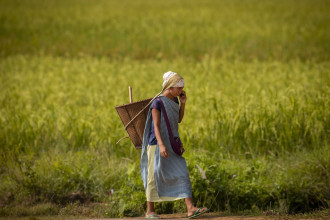
NEW DELHI: Thousands of farmers crowding buses and trains travelled to the Indian capital on Thursday to press their demand for new legislation to guarantee minimum profitable crop prices, after weeks of being blocked from the city.
They avoided using their tractors after authorities barricaded highways in New Delhi with cement blocks and barbed wire. A condition of allowing their rally in the capital was that the farmers not use their farm vehicles. They were also barred from carrying sticks or swords to avoid clashes with police.
The protesters carried placards demanding free electricity for farming. They contended that without guarantees for their crop prices, they would be at the mercy of the markets and that would spell disaster, especially for the more than two-thirds of them who own less than 1 hectare (2 1/2 acres) of land.
The rally, organised by the United Farmers Front, was held at Ramlila Ground, which is used for religious festivals, major political meetings and entertainment events.
The police permitted the rally also on the condition that the farmers wouldn't bring in more than 5,000 people, the Press Trust of India news agency said.
The protests come at a crucial time for India, which has a national election in April-May, with Prime Minister Narendra Modi's ruling party widely expected to secure a third successive term. Farmers are a particularly influential voting bloc in India with their sheer numbers. More than 60% of India's 1.4 billion people depend on farming for their livelihoods.
The farmers are also pressing the government to keep its promises to waive loans and withdraw legal cases brought against them during their 2021 protests. Several talks so far have failed to break the deadlock.
Thousands of farmers have been protesting separately in Shambhu, a town some 200 kilometres (120 miles) from the capital, since February 13.
Authorities have barricaded highways leading to New Delhi with cement blocks, metal containers, barbed wire and iron spikes to prevent the farmers from entering. The farmers have brought in bulldozers and excavators to try and push through.
On Feb 21, clashes between farmers and police left one protester dead as the farmers tried to resume their march to the Indian capital after talks with the government failed to end an impasse over their demands for guaranteed crop prices.
Haryana police said 12 officers were injured after protesters attacked them with sticks and pelted them with stones.
The farmers paused their protest and hunkered down near the town of Shambhu, close to the border between Punjab and Haryana states, as their unions engaged in discussions with government ministers.
They rejected a proposal offering them five-year contracts of guaranteed prices on a set of certain crops, including maize, grain legumes and cotton.
Two years ago, tens of thousands of farmers camped out on the outskirts of New Delhi forcing Modi to repeal new agriculture laws in a major reversal for his government.
Jagjit Singh Dallewal, one of the farmers leading the march, said they did not want any violence, but condemned the federal government over the massive security measures.
The protest organisers say the farmers are seeking new legislation that would guarantee minimum prices for 23 crops. The farmers believe this would help stabilise their income.
The government protects agricultural producers against sharp falls in farm prices by setting a minimum purchase price for certain essential crops, a system that was introduced in the 1960s to help shore up food reserves and prevent shortages. The system can apply up to 23 crops, but the government usually offers the minimum price only for rice and wheat.
By RSS/AP






